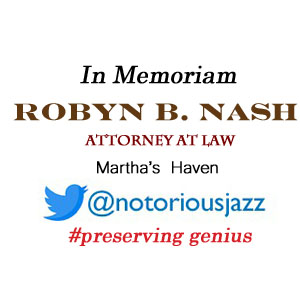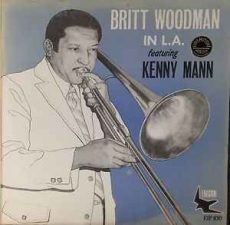
Daily Dose Of Jazz…
Britt Woodman was born on June 4, 1920 in Los Angeles, California. A childhood friend of Charles Mingus, he first worked with Phil Moore and Les Hite. After serving in World War II he played with Boyd Raeburn before joining with Lionel Hampton in 1946.
During the 1950s he worked with Duke Ellington. As a member of Ellington’s band he can be heard on twenty-five recorings such as 1957’s Such Sweet Thunder, Ella Fitzgerald Sings the Duke Ellington Song Book, and 1958’s Black, Brown, and Beige and Ellington Indigos.
1960 saw Britt departing from Ellington to work in a pit orchestra. He went on to later work with Mingus and can be heard on the album Mingus Mingus Mingus Mingus Mingus released in 1963. In the 1970s he led his own octet and recorded with pianist Toshiko Akiyoshi. In 1989, he was part of the personnel for the album Epitaph dedicated to the previously unrecorded music of Charles Mingus.
He recorded Playing For Keeps and In L.A. as a leader, and leaves a sideman recording catalogue of ninety-three albums with Toshiko Akiyoshi – Lew Tabackin Big Band, Bill Berry, Ella Fitzgerald, Lionel Hampton, Johnny Hodges, Jimmy Smith, Gene Ammons, Ray Brown, Ruth Brown, Frank Capp, Nat Pierce, Benny Carter, Rosemary Clooney, John Coltrane, Randy Crawford, Tadd Dameron, Miles Davis, Booker Ervin, John Fahey, Dizzy Gillespie, Benny Golson, Chico Hamilton, Jimmy Hamilton, Hank Jones, Oliver Nelson, Philly Joe Jones, Jon Lucien, Galt MacDermot, Teo Macero, Junior Mance, The Manhattan Transfer, Wade Marcus, Blue Mitchell, Grover Mitchell, James Moody, Maria Muldaur, Oliver Nelson, Oscar Peterson, Zoot Sims, Billy Taylor, Clark Terry, Teri Thornton, Jimmy Woode
Trombonisit Britt Woodman died in Hawthorne, California at the age of 80, having suffered severe respiratory problems on October 13, 2000.
More Posts: bandleader,history,instrumental,jazz,music,trombone
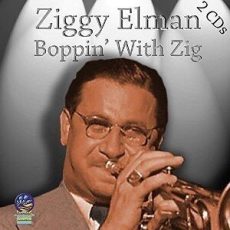
Daily Dose Of Jazz…
Ziggy Elman was born Harry Aaron Finkelman on May 26, 1914 in Philadelphia, Pennsylvania. but his family settled in Atlantic City, New Jersey when he was four. His father was a violinist who had hoped he would play violin and although he did learn to play violin, he preferred brass instruments. He began playing for Jewish weddings and nightclubs at age 15.
In 1932, made his first recording, playing the trombone. In 1936, he joined the Benny Goodman orchestra as a trumpeter, after playing briefly with a band led by Alex Bartha at Steel Pier in Atlantic City, where Goodman heard him. In 1938, while with Goodman, he got a contract with Bluebird, RCA’s cheaper label, to record 20 sides as Ziggy Elman and his Orchestra, although all the members were in Goodman’s band.
One original tune was Frailach in Swing, based on a 1918 recording of Der Shtiller Bulgar (The Quiet Bulgar) by Abe Schwartz. During the first half of 1939, Benny Goodman and His Orchestra was featured on the Camel Caravan radio show, with singer and songwriter Johnny Mercer as singer, writer of speciality numbers, and announcer. After leaving Goodman in 1940, Elman joined Tommy Dorsey and stayed until he was drafted in 1943. After he was discharged in 1946, he re-joined Dorsey for another year.
In 1956, he was asked to recreate a klezmer solo with the vocalist Martha Tilton for the movie, The Benny Goodman Story, but was unable to, his technique having since withered away. Elman appeared performing it in the film, but another trumpeter, Mannie Klein, played the solo on the soundtrack.
By the 1950s, the music had changed. Big bands had declined and for a time he switched to entertainment work. In this decade he appeared in films mostly as himself. In 1956 he had a heart attack, curtailing his music career. By the end of the 1950s he was financially ruined, and had to work for a car dealership. In 1961, it was revealed at an alimony hearing that he was virtually bankrupt. He later worked in a music store and gave trumpet lessons.
Trumpeter Ziggy Elman died of liver failure on June 26, 1968 at the age of 54 and was buried at Mount Sinai Memorial Park Cemetery in Los Angeles, California.
More Posts: history,instrumental,jazz,music,trumpet
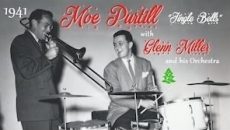
Daily Dose Of Jazz…
Maurice “Moe” Purtill was born May 4, 1916 in Huntington, New York and] dropped out of high school to start his career as a freelance drummer in New York Studios. At the age of 20 at the outset of 1936 he became a member of the Red Norvo band.
Later he joined Mildred Bailey, played briefly with Glenn Miller in 1937, then worked with Tommy Dorsey in 1938 for a year before picking up with Miller again from 1939 to 1942, when Miller had the bulk of his hits. After Miller’s band broke up in 1942, Moe played with Kay Kyser until 1944, then joined the U.S. Navy. After his discharge, he played briefly in 1946 with the reformed Glenn Miller Orchestra directed by Tex Beneke.
Purtill went on to record in the studio on various projects and participated in a few Miller reunions. He was good friends with Buddy Rich, Trigger Alpert and saxophonist Jack Palmer. He lived in New York City until the early 1970s, retired in 1978 and moved to Sarasota, Florida.
Drummer Moe Purtill died at Valley Hospital in Ridgewood, New Jersey on March 9, 1994.
More Posts: drums,history,instrumental,jazz,music
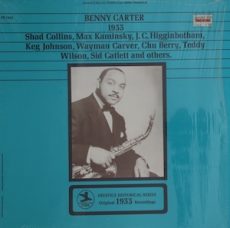
Daily Dose Of Jazz…
Johnny Simmen was born Hans Georg Simmen on April 7, 1918 in Brugg, Switzerland. He learned to play the piano for seven years, but never performed publicly. After a Louis Armstrong concert at the Zurich Tonhalle in 1934, he became fascinated with jazz. In 1935, he founded the first jazz club in Zurich, Switzerland where jazz enthusiasts could meet, where recording evenings were held, and lectures were given.
As early as the start of the Forties, Simmen was reporting from Switzerland for the American magazine Down Beat. Since he felt his high school English skills were inadequate, he took lessons and obtained the Cambridge Certificate of Proficiency in 1942, enabling him to be fully effective as a Swiss correspondent . He was able to resume his work for Down Beat in the first two years after the war.
He published numerous articles in journals such as the Bulletin du Hot Club de France, the British Melody Maker, Down Beat and the Canadian Coda. He lectured internationally on jazz and was friends with Bill Coleman, Teddy Wilson, Joe Turner and Horace Silver. He was considered one of the most knowledgeable jazz writers, specializing in musicians of the pre-bop era. Johnny’s knowledge of piano technique made his articles on jazz pianists very concise.
Simmen wrote liner notes for new editions, beginning with the prestige album Benny Carter in 1933. Starting in 1979, he produced recordings with important musicians of the 1930s. Most notably, in 1994, he released a whole series of recordings on Best of Jazz .
Holding down several day jobs, Johnny was a civil servant for the city of Zurich from 1943. Three years later Johnny joined Swissair, where as the exclusive designer of the in-flight jazz programs to entertain Swissair passengers until 1987. He delivered programs every two months, initially lasting one hour, later one and a half hours, and finally two hours.
Author and music producer Johnny Simmen died on September 23, 2004 in Zurich, Switzerland.
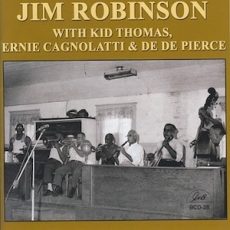
Daily Dose Of Jazz…
Cag Cagnolatti was born Ernie Joseph Cagnolatti on April 2, 1911 in Madisonville, Louisiana. He was one of six children sharing Italian and African American parentage and raised Catholic.
Cagnolatti began on trumpet around 1929 and played with Herbert Leary from 1933 to 1942, as well as off and on with Sidney Desvigne and Papa Celestin. He was a recurring member of many of the major New Orleans brass bands; he worked in the bands of George Williams in the 1940s and 1950s, and with Alphonse Picou in the early 1950s.
He recorded with Paul Barbarin repeatedly over the course of the 1950s and 1960s. He and Jim Robinson collaborated in the early 1960s, and he also recorded with Harold Dejan in 1962 and with the Onward Brass Band in 1968. From 1974 to 1980 Cagnolatti was a mainstay at Preservation Hall.
He suffered a stroke in 1980 and did not play afterwards. Trumpeter Cag Cagnolatti, affectionately known as Little Cag, died in New Orleans, Louisiana on April 7, 1983.
More Posts: history,instrumental,jazz,music,trumpet




